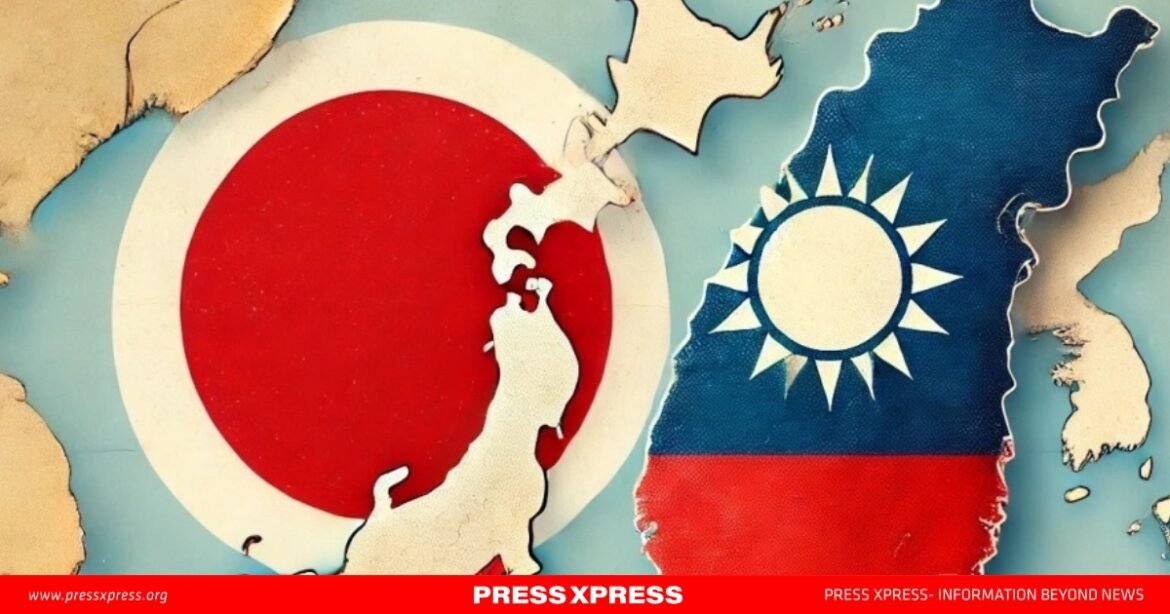Escalating tensions in the Taiwan Strait are forcing Japanese corporations to reconsider their strategies, reflecting both immediate risks and long-term implications. With over half of Japan’s major companies actively preparing for a potential Taiwan contingency, the growing perception of China-Taiwan tensions as a critical business risk underscores the intertwined economic and geopolitical stakes.
China-Taiwan Tensions
The ongoing tensions between China and Taiwan stem from deep historical and political divides. Beijing views Taiwan as a renegade province that must eventually be reunified with the mainland, by force if necessary. Taiwan, however, functions as a self-ruled democracy with its own government and economic systems. China’s growing military assertiveness in the region, coupled with its territorial ambitions, has escalated concerns over potential conflict. For nations like Japan, these tensions are more than a regional issue, as Taiwan’s stability is intricately linked to global supply chains, trade routes, and regional security dynamics.
Economic Ties with Japan and Strategic Importance
Taiwan’s significance to Japan’s economy cannot be overstated. As Japan’s fourth-largest trading partner, Taiwan plays a pivotal role in Japan’s supply chain, particularly in the technology sector. Bilateral trade totaled $75.7 billion in 2023, highlighting their economic interdependence. Key sectors, such as semiconductors, electronics, and machinery, form the backbone of this relationship, with Taiwan supplying integrated circuits, memory hardware, and processors vital to Japan’s industrial operations.

Moreover, Taiwan is a significant consumer market for Japanese luxury goods and a critical investment destination for Japanese firms in finance, retail, and pharmaceuticals. Any disruption in Taiwan’s stability threatens to reverberate across Japan’s economy, challenging its industrial output, financial stability, and consumer markets.
Corporate Risk Management and Preparations
The Kyodo News survey reveals a proactive stance among Japanese companies, with 53% having concrete measures in place, such as drafting contingency plans, stockpiling supplies, and planning evacuations.
Companies like Toyota Motor Corp. and ANA Holdings Inc. exemplify this preparedness. Another 12% recognize the urgency but have yet to act, underscoring the need for accelerated risk management efforts.

Key concerns for these companies include:
Supply Chain Disruptions: Instability in the Taiwan Strait could interrupt sea and air shipments, affecting the seamless flow of goods.
Semiconductor Supply Vulnerabilities: Given Taiwan’s dominance in semiconductor production, any disruption would strain global tech supply chains, directly impacting Japan’s information technology sector.
Energy Security: With 95% of Japan’s crude oil imports passing through the Taiwan Strait, geopolitical tensions pose a direct threat to its energy supply routes.
Strategic Adjustments in Business Models
Japanese corporations are likely to pivot towards diversification in response to the heightened risks:
Geographical Diversification: Companies are exploring alternative supply chain routes and production bases to reduce dependency on Taiwan.
Technological Self-Reliance: Investments in domestic semiconductor production and innovation are gaining momentum to mitigate risks tied to Taiwan’s semiconductor industry.
Strengthened Risk Management Frameworks: Contingency planning, enhanced monitoring of geopolitical developments, and closer coordination with government bodies are becoming integral to corporate strategies.
Broader Geopolitical and Security Implications
Japan’s response to Taiwan Strait tensions is not limited to corporate strategies but extends to national security considerations. The Taiwan Strait serves as a critical maritime artery for Japan’s trade and energy supplies. Geographical proximity and historical ties amplify Taiwan’s strategic importance for Japan, as any conflict in the region would directly impact its economic and security interests.
Collaboration with the United States further highlights the broader geopolitical stakes. Joint operational plans to counter potential Chinese aggression underscore Japan’s alignment with the U.S. in safeguarding regional stability. This defense cooperation reinforces Japan’s position in the Indo-Pacific while addressing threats from China, North Korea, and Russia.
The Global Ripple Effect
While Japan faces immediate risks, a Taiwan Strait conflict would have far-reaching consequences. Global supply chains, particularly in the tech industry, would experience severe disruptions. Emerging markets reliant on Taiwan’s semiconductor exports and Japan’s industrial output would face economic instability. Moreover, prolonged tensions could escalate into a broader geopolitical conflict, reshaping the strategic landscape of East Asia and beyond.
Conclusion
The rising tensions in the Taiwan Strait present Japanese corporations with unprecedented challenges. Balancing operational continuity with proactive risk management is critical to mitigating potential disruptions. As businesses adapt to the shifting geopolitical climate, their strategies will not only define their resilience but also underscore the importance of Taiwan’s stability to Japan’s economic security. The coming years will test the adaptability and foresight of Japan’s corporate and strategic responses, shaping the future of its regional and global economic influence.


